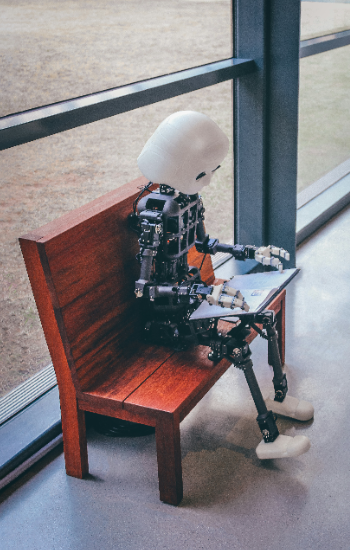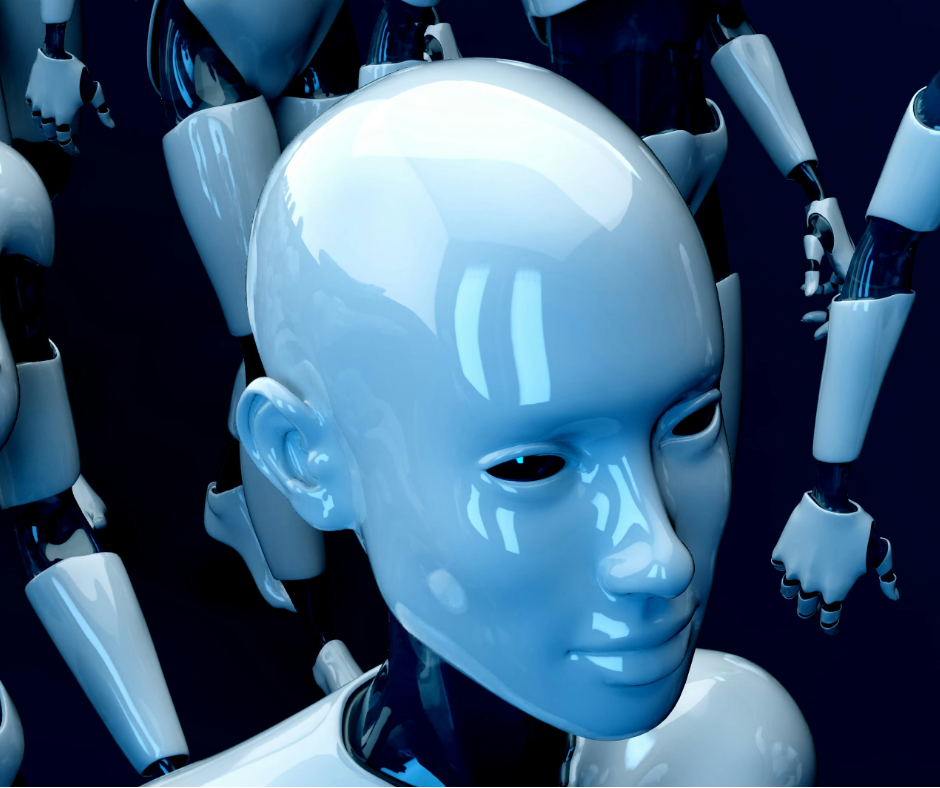Generative AI: Revolutionizing Industries and Reshaping Economies
Generative Artificial Intelligence (AI) stands at the forefront of technological innovation, heralding a new era of creativity and efficiency across various sectors. With its ability to autonomously produce new content, such as images, text, music, and even entire scenarios, generative AI is reshaping the way we approach creativity, productivity, and problem-solving.
 An Art Image Generated by Generative AI
An Art Image Generated by Generative AI
Introduction of Generative AI
Generative AI, a rapidly evolving field within artificial intelligence, has the power to revolutionize how we create and consume content, products, and experiences. By learning from vast amounts of data, generative models can generate new and often indistinguishable content, from realistic images and code to compelling narratives and music. This has the potential to disrupt industries, reshape markets, and redefine human-computer interaction in profound ways.
This article aims to explore the concept of generative AI, its underlying mechanisms, applications across different industries, and its profound impact on the current economy and market dynamics.
Understanding Generative AI: How it works
Generative AI refers to a subset of artificial intelligence techniques that enable machines to produce new content that is often indistinguishable from human-created content. Unlike traditional AI systems, which are primarily focused on recognizing patterns and making decisions based on existing data, generative AI has the capability to create entirely new data based on the patterns it has learned.
 Generative AI learns from Existing DataOne of the most popular approaches to generative AI is Generative Adversarial Networks (GANs). GANs consist of two neural networks: a generator and a discriminator. The generator creates new data instances, while the discriminator evaluates these instances and provides feedback to the generator. Through an iterative process, both networks improve their performance, leading to the generation of increasingly realistic and diverse content.
Generative AI learns from Existing DataOne of the most popular approaches to generative AI is Generative Adversarial Networks (GANs). GANs consist of two neural networks: a generator and a discriminator. The generator creates new data instances, while the discriminator evaluates these instances and provides feedback to the generator. Through an iterative process, both networks improve their performance, leading to the generation of increasingly realistic and diverse content.
At its core, Generative AI involves algorithms trained on massive datasets that learn the underlying patterns and relationships within that data. Once trained, these models can generate new content that closely resembles the training data, often in response to specific prompts or instructions. This can take various forms, including:
- Text generation: Creating stories, poems, scripts, code, product descriptions, marketing copy, and more.
- Image generation: Producing realistic or fantastical images, portraits, landscapes, and even editing existing images.
- Audio generation: Composing music, sound effects, voiceovers, and other audio content.
- 3D modeling: Design and creation of 3D models for products, environments, and characters.
Applications of Generative AI: How can it used
Generative AI has found applications across a wide range of creative industries like design and marketing to scientific research and manufacturing, revolutionizing processes, and unlocking new possibilities for innovation. Some of the notable applications include:
- Art and Design: Generative AI is being used to create digital art, design products, and develop virtual environments. Artists and designers leverage generative algorithms to explore new aesthetic possibilities and generate novel designs.
- Content Creation: In media and entertainment, generative AI is employed to produce music, videos, and written content. This technology enables content creators to automate the generation of diverse content at scale, catering to different audience preferences.
- Gaming: Game developers utilize generative AI to create procedurally generated content, such as landscapes, characters, and quests. This approach enhances the replay value of games and reduces the development time required to create vast virtual worlds.
- Healthcare: In healthcare, generative AI is used for medical image synthesis, drug discovery, and personalized treatment planning. By generating synthetic data and simulating biological processes, researchers can accelerate the discovery of new drugs and therapies.
- Finance: Generative AI plays a crucial role in financial modeling, risk assessment, and algorithmic trading. By generating synthetic financial data and simulating market scenarios, financial institutions can make more informed decisions and mitigate risks.
- Fashion and Retail: Retailers leverage generative AI to design clothing, predict fashion trends, and personalize shopping experiences. By analyzing vast amounts of data, including customer preferences and market trends, generative algorithms can generate tailored recommendations and designs.
 Image Generated By Generative AI
Image Generated By Generative AI
Impact on the Economy and Market Dynamics
Generative AI is poised to have a transformative impact on the economy and market dynamics, reshaping industries and driving innovation. Some of the key ways in which generative AI is influencing the economy include:
- Increased Efficiency and Productivity: By automating repetitive tasks and accelerating the creative process, generative AI enhances efficiency and productivity across industries. Businesses can streamline operations, reduce costs, and focus on high-value tasks, leading to overall economic growth.
- Job Displacement and Reskilling: While generative AI creates new opportunities for innovation, it also raises concerns about job displacement and the future of work. As automation becomes more prevalent, certain jobs may become obsolete, requiring workers to acquire new skills and adapt to changing labor market demands.
- Emergence of New Business Models: Generative AI enables the creation of new business models and revenue streams. Companies can monetize generative algorithms by offering creative services, licensing generated content, or developing innovative products and solutions.
- Economic Inequality and Digital Divide: The widespread adoption of generative AI may exacerbate economic inequality and widen the digital divide. Access to advanced AI technologies and the skills required to leverage them effectively may be limited to certain individuals and organizations, potentially creating disparities in wealth and opportunity.
- Regulatory and Ethical Considerations: As generative AI becomes more pervasive, regulators and policymakers must address ethical concerns and establish guidelines to ensure responsible use. Issues such as data privacy, intellectual property rights, and algorithmic bias require careful consideration to mitigate potential risks and safeguard societal welfare.
- Global Competitiveness and Innovation: Countries and companies that embrace generative AI early on stand to gain a competitive edge in the global marketplace. By investing in research and development, fostering talent, and promoting collaboration between academia and industry, nations can position themselves as leaders in AI innovation and drive economic growth.
Ethical Considerations and Challenges
Generative AI raises important ethical and social questions that need careful consideration:
- Bias: Generative models can perpetuate biases present in the data they're trained on, leading to discriminatory outcomes. Mitigation strategies are crucial.
- Misinformation and deepfakes: The ability to create realistic but fake content can be misused for malicious purposes. Robust detection and mitigation methods are essential.
- Intellectual property and ownership: Who owns the rights to content created by AI? Clear legal frameworks are needed.
- Job displacement and reskilling: Strategies are necessary to support workers potentially displaced by automation and equip them with new skills.
 Generative AI works online from anywhereGenerative AI represents a paradigm shift in how we create, innovate, and interact with technology. From art and entertainment to healthcare and finance, generative AI is transforming industries and driving economic growth. Generative AI is a powerful tool with the potential to transform our world. While navigating the associated challenges is essential, its potential benefits for creativity, efficiency, and personalization are undeniable. By embracing responsible development and deployment, we can ensure that generative AI empowers individuals and societies alike.
Generative AI works online from anywhereGenerative AI represents a paradigm shift in how we create, innovate, and interact with technology. From art and entertainment to healthcare and finance, generative AI is transforming industries and driving economic growth. Generative AI is a powerful tool with the potential to transform our world. While navigating the associated challenges is essential, its potential benefits for creativity, efficiency, and personalization are undeniable. By embracing responsible development and deployment, we can ensure that generative AI empowers individuals and societies alike.
However, its widespread adoption also poses challenges related to job displacement, ethical considerations, and economic inequality. To harness the full potential of generative AI and ensure its benefits are equitably distributed, stakeholders must collaborate to address these challenges and shape a future where AI-driven innovation benefits society as a whole.
Join Us
Stay updated with the latest Sarkari Jobs by joining our community. Follow us on social media and subscribe to our newsletter for regular updates.




